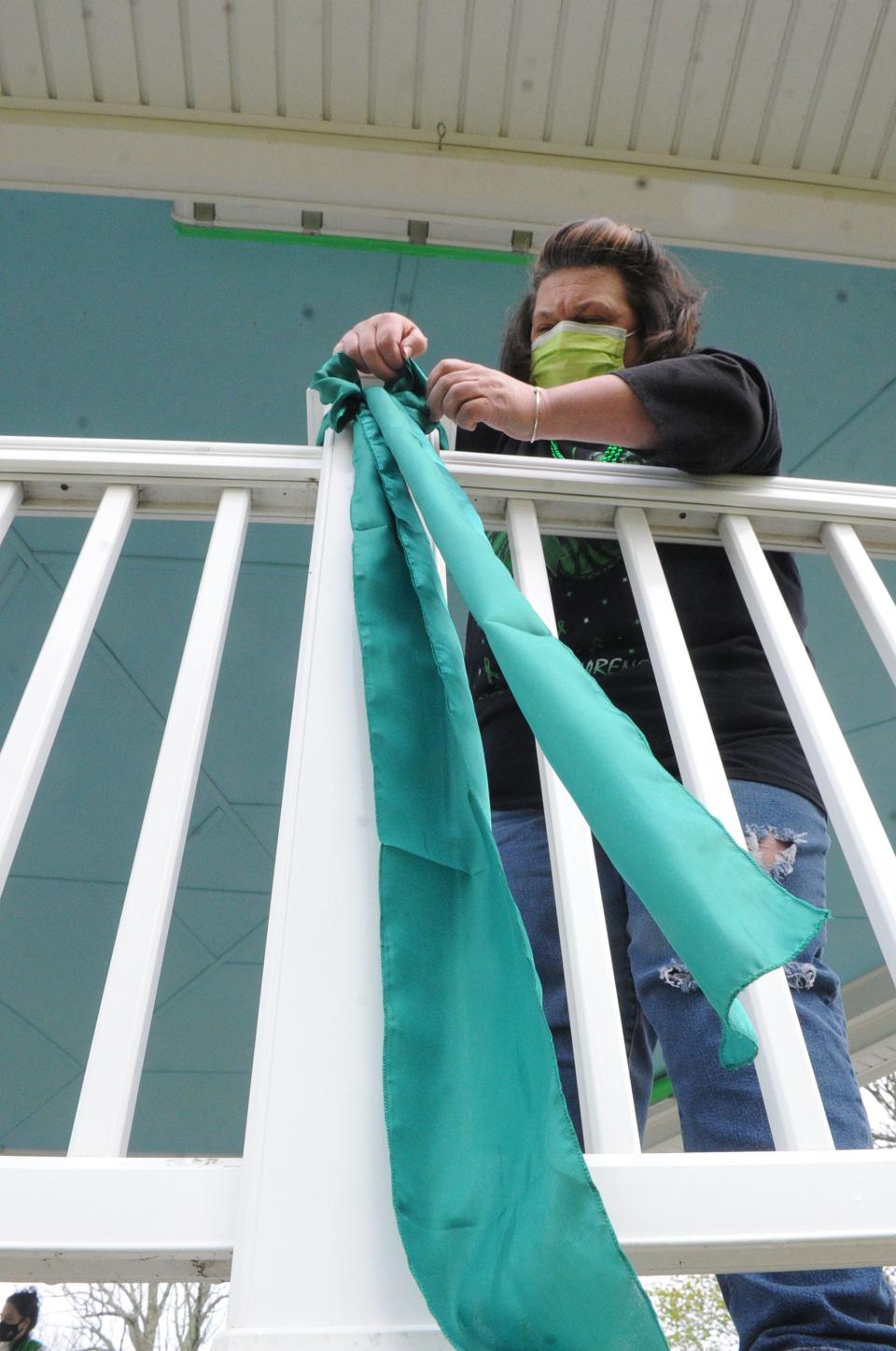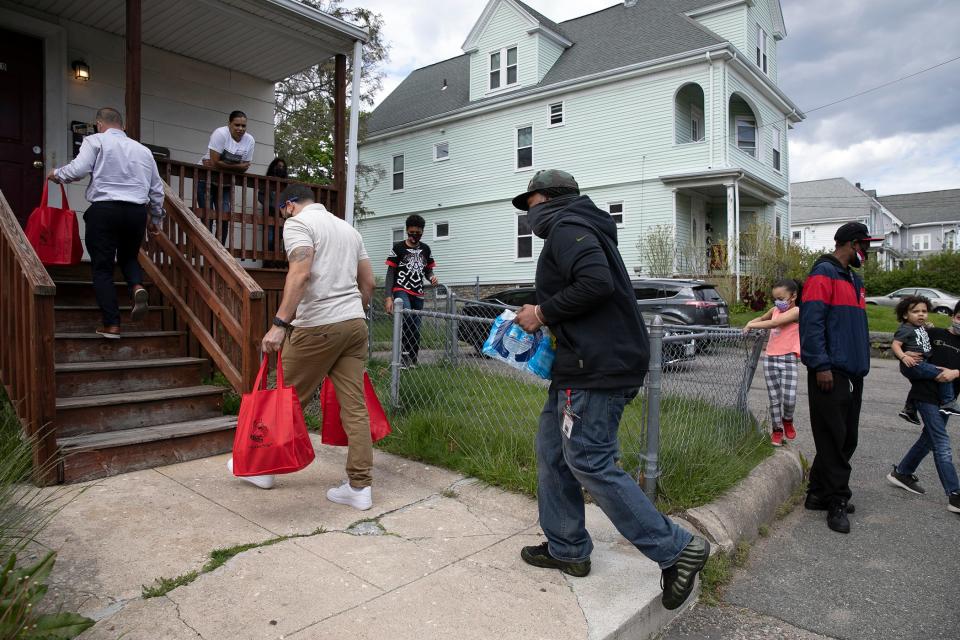'The battle we fight everyday': How the pandemic is impacting Brockton kids' mental health
BROCKTON — Has your child or teenager started struggling mentally or acting out during the pandemic? You’re not alone.
At 22 months and counting, the pandemic has taken a toll on most people. But, local experts say children and teenagers are being particularly impacted mentally and emotionally, leading to an increase in problems like anxiety and depression and negative changes in behavior for many.
“Children thrive on predictability and stability,” said Dr. Elizabeth Englander, a professor of psychology at Bridgewater State University. “And right now, we’re in a situation where it’s the opposite of that.”

Englander’s research centers on children’s mental health, especially issues like bullying, cyberbullying and aggression in children. She said that, at the beginning of the pandemic, she and others were particularly worried about a spike in cyberbullying.
“But that really hasn’t materialized,” she said.
Instead, she and other researchers have seen an increase in children experiencing anxiety and depression based on metrics like hospital admissions for children experiencing mental health emergencies. Much of this, she said, stems from feelings of isolation and a lack of social interactions.
Care packages and wake-up calls: Here's what Brockton schools are doing to keep COVID truancy spike from sticking
Younger students, especially, are dealing with increased separation anxiety during in-person school, after becoming acclimated to being at home with their parents during remote learning.
They’ve also heard from teachers about students displaying a noticeable increase in behavioral problems, Englander said. Younger students will sometimes get up from their desks and sit on the floor during class, or struggle to not talk with their classmates.
“One teacher said to us, ‘It’s like they’ve forgotten how to be in school. They’re treating it like it’s their living room,” she said. “They just don’t know how to behave.”
'Home and school fused'
Sharon Walder, chief officer of student support services in Brockton Public Schools, is not surprised that students are treating the classroom like their living room, she said.
"Home and school fused in a way. Home used to be home, and school used to be school, and all of a sudden, school was in your home. It doesn't surprise me that teachers are finding kids coming back to school and taking home with them," Walder said.
"Sometimes teachers will assume kids will come back and settle in the way it used to be, and that's the reality we're facing. We can't get back to the way things used to be. We have to figure out a way to be successful now. Students don't have the separation anymore. Habits come into school that were at home and vice versa."
Not business as usual in Brockton
Walder and John Snelgrove, head of the guidance department at Brockton Public Schools, agree that the journey of reintroducing students to a normal class culture will be challenging since they have been in a pandemic for two years.
![Brockton mentors John Snelgrove, Carlito Weaver, John Williams, Tristan Fortsmith and Jordan Cruz pose for a portrait at Brockton High School on Monday, May 10, 2021. [Alyssa Stone/The Enterprise]](https://s.yimg.com/ny/api/res/1.2/NT5Ln9CQsDWREjg52jqYEg--/YXBwaWQ9aGlnaGxhbmRlcjt3PTk2MDtoPTY0MA--/https://media.zenfs.com/en/the-enterprise/ca34b3fe018e1d56812a4e3a1b49c97c)
"To some of our kids, the culture, the climate, the expectations of the classroom had to be reviewed. Many of us assumed they would come in and it would be business as usual. 'They've been in our district for years. They're going to be fine.' And for a lot of our kids that wasn't the case. They needed a reminder and refresher of the culture, climate, and expectations of the classroom and the school," Snelgrove said.
Heightened levels of anxiety, depression and anger
Together the pair are rethinking strategies to alleviate some of the behaviors, anxiety, and depression students face from the pandemic.
"Students in all levels are finding it difficult to navigate school with the circumstances of the pandemic. No one is untouched by the pandemic, and students already face challenges with life experiences as teens growing up, and the pandemic is making them struggle even more," Snelgrove said.
Students are fearful of contracting COVID and bringing it home to their families. In addition, some students have family members with compromised immune systems, which makes them even more fearful of this virus, Walder said.
"The level of anxiety everyone is carrying is heightened. Kids are no different in terms of feeling anxious, experiencing losses, changes of feelings of safety, fear of getting sick. It affects people of all ages and levels. Our students are not exempt from that," Walder said.
Finding reasons not to be in class
Walder is noticing there are attendance issues. Students are showing behaviors of avoidance, finding any reasons to not be in class. Some students are reacting with anger.
They come into the class with built-up tension and aggression. But the district is finding solutions.
Finding solutions
A few techniques classrooms in Brockton are using to assist students include: on-site mentors, parent-student workshops, more guidance counselors and social workers in each building and mindfulness strategies to clear the students' cluttered minds.

Snelgrove constantly reassures the students they are well supported, protected and safe in school, but the uncertainty of the virus is scary to all of us, he said.
The introduction of coping mechanisms has allowed students to calm themselves down without reacting out of anger and being able to solve their own problems.
Teachers in the district are more proactive by asking students more questions, especially if they notice a behavioral change. In addition, building more positive relationships and checking in with students gives them a security blanket.
"In order for a student to be available to learn, they must feel safe and comfortable. Positive relationship building of checking in and letting the kids know you care about them are the kinds of things needed," Walder said.
A rising concern Walder mentioned was that tone and conversations matter.
"Teachers have to be deliberate with their communication with their students simply because the students can't see your whole face anymore. We continue to communicate this with staff and the idea of being very purposeful when building positive relationships with students and families," Walder said.
"This school system is dedicated to finding ways to best support our students through this pandemic while working constantly to make sure the academic role of school isn't lost. That's the battle we get up and fight every day," Walder said.
Enterprise staff reporter Alisha Saint-Ciel can be reached by email at stciela@gannett.com You can follow her on Twitter at @alishaspeakss. Support local journalism by purchasing a digital or print subscription to The Enterprise today.
This article originally appeared on The Enterprise: Brockton mental health: How the COVID pandemic is impacting kids

